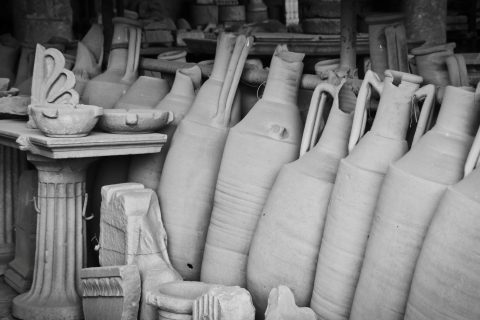Progressive reflections on the lectionary #49
Monday 13th January 2025
John 2: 1-11 The wedding at Cana

This week’s passage is one of the big beasts - the story of the wedding at Cana where Jesus magically turns water into wine.
It’s a story that surpasses most others in its ability to make a mark on the general psyche, the sort of magic that many people wish was a reality in their daily life (so long as they don’t think too hard about the consequences of such a possibility).
I’m not someone that believes that God can magically turn water into wine - to say that God has such power would be to say that God has absolute power over all things - and that would be to say that, in fact, any sense of ‘freedom’ we have is entirely false. It would also mean that God has the power to do all sorts of things that God evidently does not do (their names are legion for they are many) and that too has some serious consequences.
If you’re interested in the sort of Christian theology that doesn’t depend on a God who is all powerful and strangely obscure in (‘his’!) decision making, then you should come to this conference about which more later.
So no, I don’t believe that this is a story to be taken literally - it’s the first of John’s “signs” and it marks, in John’s gospel, the beginning of Jesus’ ministry. It also, though, contains a number of remarkable moments, such as when Jesus is rude, or at least ‘abrupt’ to his mother before ultimately acceding to her.
What is the writer doing here, then?
Some people like to say that this is a kind of ‘antitype’ story to the story of Moses’ first piece of magic, the transformation of the Nile into blood. I think that’s a valid interpretation as far as it goes, the writer of John is keen on Mosaic parallels, but it doesn’t adequately account for the details of this particular story.
A closer analogy, in my view, is with the story of another luminary of the Hebrew Scriptures: Elisha. I won’t go into the full details of why this story is so dependent upon 2 Kings 4: 1-7, but the structural parallels are quite obvious even on a quick comparative reading.
And the strange way that Jesus treats his mother “…what concern is that to me and to you?” (John 2:4a) is basically a lift from the Elisha story too (2 Kings 3:13) although the translation doesn’t always quite pick it up clearly owing to the complexity of the phrasing. Jesus’ statement in John’s story, then, is a parallel to Elisha’s response to the kings of Israel, Judah and Edom who have run out of water.
In this passage the writer of John is using a rewrite of a classic story from the prophetic tradition to tell his readers that Jesus is ‘the prophet’ they need. The one who will fulfil the expectation of the Messianic age, that it will flow with wine (other examples of the same imagery abound). This is in the context of people understanding that John the Baptist is a foretold prophet, so the evangelist needs to demonstrate a difference between the two. Putting Jesus into the role of Elisha fulfils this purpose.
And of course this wine, this new wine, surpasses the old, this new prophet surpasses all who have come before him.
There are tonnes of other things that you can pull out of this story, many of which are really helpful. My real hope is that we don’t simply continue to repeat the (in my view very harmful) idea that Jesus’ earliest followers, people steeped in the Hebrew tradition and desperate for a Messiah, fundamentally believed that Jesus was a sort of celestial conjuror, fulfilling the role of a genie who could/would grant wishes so long as it was ‘the right time’ - their concern was much more serious than that, so should ours be.
This blog is taken from Simon's Substack email series, to subscribe please go to https://simonjcross.substack.c...
Image: Photo by Andrea Woods on Unsplash


Comments